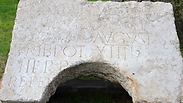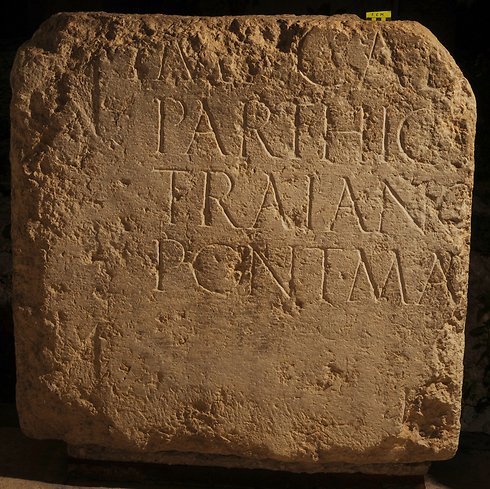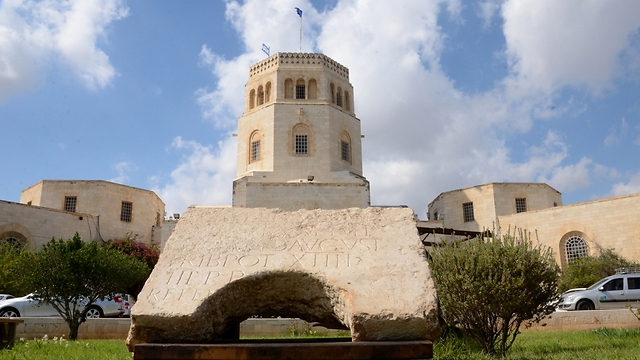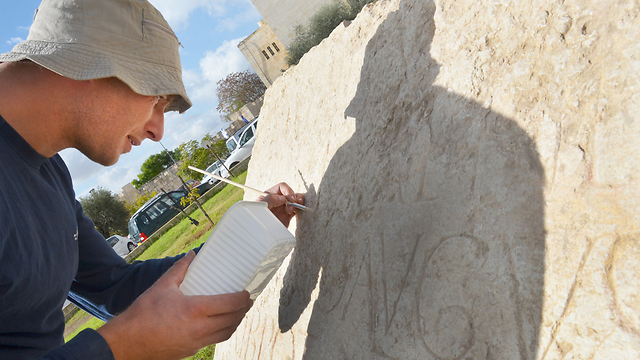
2,000-year-old stone fragment unearthed in Jerusalem
Stone with Latin inscription, dedicated to emperor known for his cruelty to Jews, uncovered north of Damascus Gate.
A 2,000-year-old stone fragment with an engraved inscription was recently unearthed by Israel Antiquities Authority archaeologists in excavations carried out north of the Damascus Gate. "This is one of the most important Latin inscriptions ever discovered in Jerusalem." one of the IAA researchers said.
On the stone is an inscription dedicated to the Roman emperor Adrianus, who was known for issuing anti-Jewish policies, including orders that outlawed the keeping of Shabbat and prohibited Jews from praying and from performing circumcisions.

Dr. Rina Avner and Roy Greenwald of the Israel Antiquities Authority said that the archaeologists "found the inscription incorporated in secondary use around the opening of a deep cistern"
They further added that "in antiquity, as today, it was customary to recycle building materials and the official inscription was evidently removed from its original location and integrated in a floor for the practical purpose of building the cistern."
Researchers translated the six lines written in Latin on the rock as saying: "To the Imperator Caesar Traianus Hadrianus Augustus, son of the deified Traianus Parthicus, grandson of the deified Nerva, high priest, invested with tribunician power for the 14th time, consul for the third time, father of the country (dedicated by) the 10th legion Fretensis Antoniniana."
Avner Ecker and Hannah Cotton of the Hebrew University of Jerusalem explained that "the inscription was dedicated by Legio X Fretensis to the emperor Hadrian in the year 129/130 CE."
According to the researchers, the stone fragment that was unearthed is one of "the most important Latin inscriptions ever discovered in Jerusalem," as it sheds light on the date of Roman emperor Hadrian's visit to Jerusalem.
The IAA says the inscription, along with previous finds, may help flesh out the reason for the Bar Kochba revolt, a failed Jewish rebellion against the Romans in the second century which resulted in their exile.
The cause of the revolt is disputed. It is unclear whether the Jews were provoked by harsh Roman measures or whether they rose up independently.
Speaking of the discovery, Dr. Avner said that the stone fragment "is a significant and tangible confirmation of the historical account regarding the presence of the 10th Legion in Jerusalem during the period between the two revolts, and possibly even the location of the legion’s military camp in the city, and of one of the reasons for the outbreak of the Bar Kokhba revolt several years later and the establishment of Aelia Capitolina,” she said.
More information on the inscription will be presented at a conference open to the public entitled “Innovations in the Archaeology of Jerusalem and its Surroundings", that is to be held Thursday at the Mount Scopus campus of the Hebrew University of Jerusalem.
Associated Press contributed to this report.












